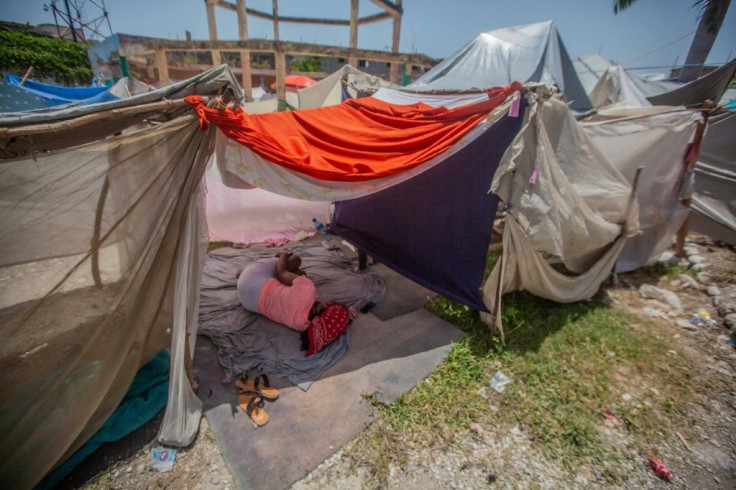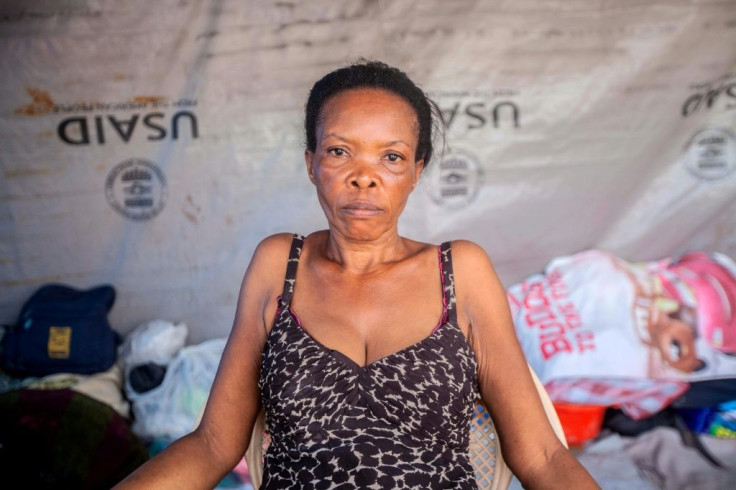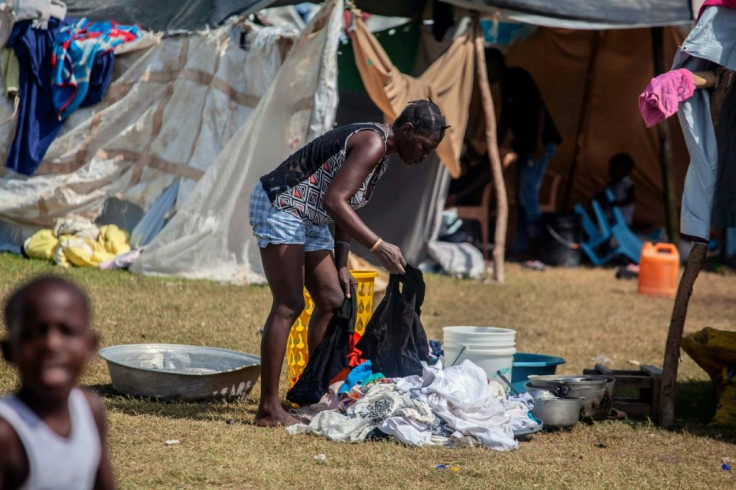Haitian Women, Left Homeless By Quake, Fear Rape
Vesta Guerrier survived Haiti's massive earthquake this month but it flattened her home and she has since been living at a makeshift camp with the fear she could be raped at any time.
"We're not safe," she told AFP, echoing the worry of other Haitian women all too aware of the sexual violence that has followed the disaster-plagued nation's previous calamities.
Home for Guerrier, her husband and three children was a flimsy shelter made of sticks and plastic sheets at a sports center in the hard-hit town of Les Cayes, on the peninsula southwest of the capital Port-au-Prince.
"Anything can happen to us," said Guerrier, 48. "Especially at night, anybody can enter the camp."

The 7.2-magnitude quake that struck on August 14 killed over 2,200 people but also destroyed or heavily damaged tens of thousands of homes in a nation still recovering from 2010's devastating quake.
After the tremor 11 years ago, which killed over 200,000 people, some survivors spent years in makeshift shelters where victims were assaulted by armed men and gangs of youths who roamed the poorly lit, overcrowded camps after dark.
More than 250 cases of rape were recorded in the roughly five months after the 2010 disaster, according to a 2011 Amnesty International report that noted many advocacy groups considered that a fraction of the true number.
About 200 people were living at the same camp as Guerrier, where privacy is next to impossible.
Because of her worries about being attacked, Guerrier does not entirely remove her clothing to bathe and always waits until dark to wash so that others cannot see her.

When light does fall on her in the darkness of the camp she is left wondering if it's just one of her neighbors, or if it's "someone who wants to do what he wants to do," she added.
There were no functioning toilets at the site, which makes Guerrier afraid and embarrassed because "people can see you from every direction."
"Only the girls can understand what I'm telling you. We women and the little ones who are here, we suffer a lot," she said.

Other evacuees at the camp also revealed their fears.
"We are afraid, we are really afraid for our children. We need tents so we can go back to living at home with our families," said Francise Dorismond, who is three months pregnant.
Another makeshift camp has popped up a short distance away from the main site due to the risks of attacks.
Pastor Milfort Roosevelt said "the most vulnerable" have been placed there.
"We protect the young girls. In the evening, we have set up a security team that patrols throughout the night and ensures that no young men commit violence against these women," explained the 31-year-old.
In the ruins of a former nightclub destroyed by Hurricane Matthew in 2016, dozens of people were taking shelter in a tangle of sheets and tarps strung between walls.
In the middle of this maze, young mother Jasmine Noel tried to make make a bed for her 22-day-old baby to sleep in.
"The night of the earthquake, I was going to sleep on the field next door but they told me that with my baby, it was not right so they welcomed me here," said Noel.
"Some people always try to take advantage of these kind of moments to do wrong," she said, adding that her suffering makes it feel like she is no longer "really living."
"Our bodies are here, yes, but our souls are not," said Noel, hoping her mother, a street vendor, would have made enough that day to buy food for them.
amb/led/jm/dw
© Copyright AFP {{Year}}. All rights reserved.





















